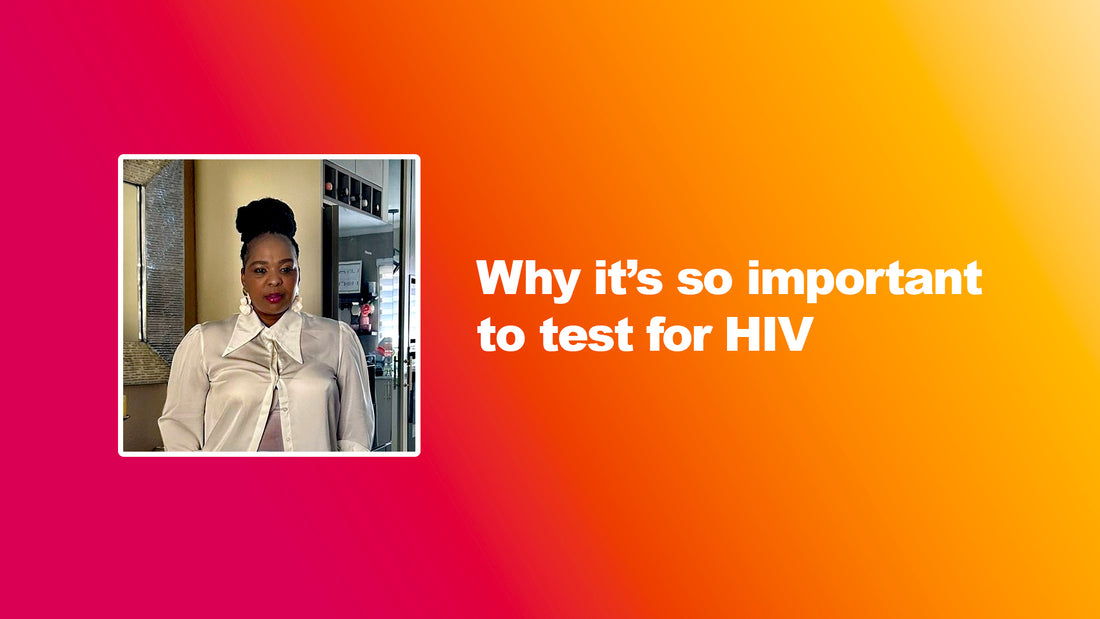Author, Executive Personal Assistant, Leader of an International Church Woman’s choir and single mum Polly Ndzotyana shares her journey of living with HIV for 23 years and explains why it is vital to test for HIV and the impact of not having treatment:
‘I was diagnosed with HIV in the year 2000, as I was about to get married, and we were planning to buy a house. It was essential to get life cover and test for HIV where I lived in Kentane, on the Eastern Cape in South Africa. My results came back positive and my partner’s came back negative. It was a great shock. I was in such disbelief, fearing that I would not even see the next five years, let alone the next 23 years!
I got divorced after 2 years and was on my own in a town that I was not familiar with.
In 2008 my health deteriorated because of a lack of education about how to manage HIV. More importantly, the shame and the stigma attached to it meant that I felt I could not share my status with anyone, including my doctor!
I was then admitted to hospital for a Pancreas operation, and I was not on medication. My health took another turn and my CD4 cell count was at number “4” and my viral load was in the millions.
Thankfully I had a very supportive doctor, who was a specialist in the HIV/AIDS field, and I was immediately put on antiretroviral medication.
This could all have been avoided if I had started antiretroviral treatment immediately following knowing my status back in the year 2000. This is why it is so important to test, to #KnowYourStatus and to start treatment as soon as possible. Early detection of HIV is imperative for each and every one of us. If you don’t test, you can’t treat!
I never gave up and in that hospital bed I always believed that I had a story to tell, to encourage other people that it is possible to live positively with HIV.’
What is a CD4 Count
CD4 cells are white blood cells that play an important role in your immune system. Your CD4 cell count gives you an indication of the health of your immune system – your body’s natural defense system against infections and illnesses.
CD4 cells are sometimes called T-cells, T-lymphocytes, or helper cells. Your CD4 cell count is the number of blood cells in a cubic millimetre of blood (a very small blood sample). It is not a count of all the CD4 cells in your body. A higher number indicates a stronger immune system.
- The CD4 cell count of a person who does not have HIV can be anything between 500 and 1500.
- People living with HIV who have a CD4 count over 500 are usually in pretty good health.
- People living with HIV who have a CD4 cell count below 200 are at high risk of developing serious illnesses. HIV treatment is recommended for all people living with HIV. It is especially important for people with low CD4 counts.
If you have HIV and do not take HIV treatment, your CD4 count will fall over time. The lower the CD4 cell count, the greater the damage to the immune system and the greater the risk of illness.
When you take HIV treatment, your CD4 count should gradually increase.
Apart from HIV treatment, there are no medications, vitamins or supplements that are proven to be effective in boosting the immune system and increasing your CD4 count.*
So, don’t delay, #GetTested today.
Order your OraQuick HIV Self Test below:
You can read more about Polly’s journey in her book titled ‘Who Told You – a Woman’s Journey with HIV available here:
https://www.xlibris.com/en/bookstore/bookdetails/518419-who-told-you
Source:
*https://www.aidsmap.com/about-hiv/cd4-cell-counts


